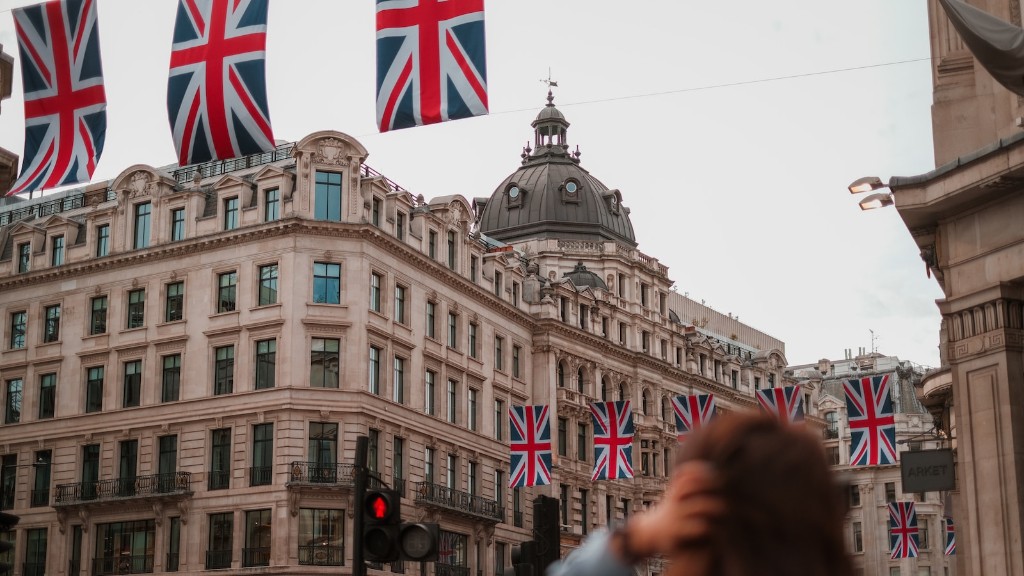Great Britain has been seen as a major player in the world’s politics for centuries. However, some people may have various reasons to feel that Britain’s leadership has been in some way inefficient. This article aims to explore further why that could be the case.
The United Kingdom is the only country in the world to have experienced several centuries of stable governance. This is usually perceived as an advantage, however, when it comes to staying ahead in terms of economic and political innovation, Britain’s long-term stability has been seen as a hindrance.
Furthermore, Great Britain’s parliamentary system and the ensuing need for consensus building has long posed a challenge in terms of decision-making speed. Instead of quickly introducing new ideas as other major economies have done, Britain’s leadership has often been delayed on account of its slow consensus building model. Expert economist David Richards argues that “the UK’s political structure has played a role in its economic stagnation, as it has hampered swift decision making on vital economic matters”.
Another way in which Great Britain’s leadership has been inefficient is in regards to its international relationships. Over the past few decades, the United Kingdom has not been particularly adept in managing its relationships with important partners such as the United States and the European Union. While this is understandable given the complex global power dynamics, some commentators argue it has been a major factor in why Britain’s influence on the world stage has declined.
The importance of recruiting and retaining the brightest of minds should not be underestimated either. The UK has long spoken highly of its version of meritocracy, yet research published in 2020 by the Oxford University admissions office has cast strong doubt on this claim. This research has suggested inequality in the British education system has been perpetuated by a bias towards affluent students, and has been a major source of why British leadership has been inefficient in recent decades.
Apart from the points discussed above, Britain has also experienced high levels of economic inequality throughout its history. While this can be seen as a natural result of the free market system, some commentators have argued this inequality has in turn fed the inefficiencies at the heart of British leadership. For example, this sad reality has meant less investment in the UK’s most developed and innovative areas of the economy.
Political Participation
For many years, Great Britain’s political structure has been dominated by a small, relatively homogenous group of people from the top of society. This has meant British citizens have felt excluded or disenfranchised and as a result, their active participation has been limited. This is unfortunate as the opinions and voices of ordinary citizens can be a powerful tool to improve the decision making process.
Additionally, Britain’s electoral system has long been under fire for its slow-moving and outdated approach. It is argued that in a rapidly changing world, Britain’s reliance on its centuries-old voting system has meant it has not been able to effectively adapt to the changing needs of its citizens.
Finally, there is the question of transparency. The UK has traditionally done little to ensure its leadership is open and accountable to its citizens. This lack of transparency has been seen as one of the reasons why Britain’s leadership has been inefficient, as it has not been possible for ordinary citizens to track and engage with the decisions of the government.
Public Perception
The perception of inefficiency in British leadership is something that has been reflected in public sentiment for many years. Various surveys have indicated that the public’s trust in the government has been in decline for decades, with a noticeable drop seen since the Global Financial Crisis. This distrust has had a major impact on how efficiently Britain’s leadership can work, as it has meant citizens have been less likely to support the government and its decisions.
Moreover, this disillusionment with the government has been exacerbated by the media. Major newspapers and television news networks are commonly accused of sensationalising stories in order to gain public attention and readership. This has not only caused the UK government to be viewed in a negative light, but has also led to a lack of accurate and transparent reporting on government decisions.
Finally, the use of spin doctors by the current government has further damaged public trust in Britain’s leadership. This is because these spin doctors often seek to manipulate public opinion, thus creating an environment where citizens are unable to get accurate, unbiased information from the government.
International Relations
When it comes to international relations, Great Britain’s leadership has been in some ways inefficient. This is due to an inability to effectively interact with powerful foreign nations such as the US, China, and the EU. This issue has been Europe in particular due to Britain’s now infamous ‘Brexit’. Not only has this limited trade relationships between Britain and Europe, but it has also left the UK without the important input and influence it once had on major global decisions.
Furthermore, in order to maintain diplomatic relations with foreign nations, Britain’s leadership has often had to compromise on certain issues. For example, it has found itself in the position of having to support foreign policies which it once opposed in order to keep the peace. This has been seen in many cases, such as its support for the US invasion of Iraq in 2003.
Additionally, there has also been the issue of geopolitical missteps. Britain’s foreign relations have often been complicated by its failure to adequately anticipate and respond to the changing dynamics of global politics and power structures. As a result, Britain has found itself in the position of having to catch up with its peers or miss out on potential economic and geopolitical opportunities.
Economic Growth
The rate of economic growth in Great Britain under its leadership has been lacklustre compared to other major economies. This has been particularly highlighted in the aftermath of the 2008 financial crash, as Britain has not been able to keep up with the growth seen in European and Asian countries. This has been a source of criticism for its leadership, as it arguably should have done more to quickly boost the British economy.
Furthermore, inequality in Britain has been an issue. This is mainly due to the fact that its economy is still largely based on private ownership and the free market. While this has had some positive outcomes, the fact remains that there is still a large gap between the wealthy and the poor. This is something that has been perpetuated by Britain’s leadership, as policies designed to help narrow the gap have often been slow to be implemented or inadequate.
Finally, the lack of public investment in certain areas of the British economy has been seen as one of the main reasons for its persistent economic stagnation. While the UK government has increased public investment in recent years, it has often been too little too late. This has meant Britain has been unable to capitalise on the potential of its most innovative sectors, which in turn has had a detrimental impact on its overall economic growth.
Political Reform
One of the ways in which Britain’s leadership could become more efficient is by reforming its political system. This could include a revision of its longtime reliance on consensus building, as this has often proven to be a hindrance to quickly introducing new policies or ideas.
Moreover, reform could also focus on the electoral system. This has long been seen as outdated and inadequate for a modern democracy, and changes to it could help ensure British citizens are better represented in the decision-making process.
In addition, changes to the process of recruiting and retaining the brightest minds could also be beneficial. Such reforms could attempt to ensure all students have a fair chance of gaining access to the best education available, regardless of their socio-economic background.
Finally, in order to improve the transparency of Britain’s leadership, reform could focus on giving citizens access to reliable and credible information on government decisions. This could be done through the use of public databases and specialised websites set up to provide detailed and up-to-date information on government activity.




